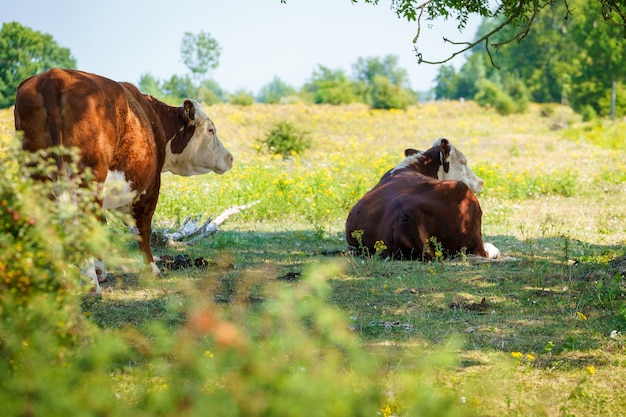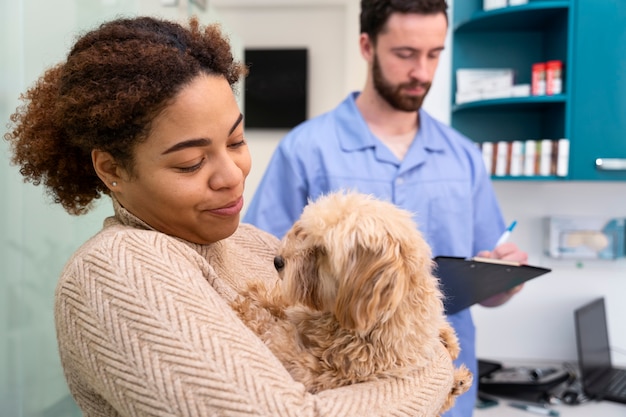Managing Rainy Season Risks for Pets and Livestock in Laredo

Managing Rainy Season Risks for Pets and Livestock in Laredo
As September arrives in Laredo, the rainy season brings much-needed relief from the summer heat, but it also introduces unique challenges for pet owners and livestock keepers. At Rio Grande Veterinary Clinic, located at 3311 East Del Mar Blvd Suite 201, Laredo, TX 78041, we understand how quickly wet weather can turn your backyard or pasture into a muddy, parasite-prone environment. Whether you care for companion animals or manage herds, navigating the risks of the rainy season requires proactive attention and reliable veterinary support.
This guide will help you recognize the hazards that come with Laredo’s wet months, explain why these risks spike in our region, and outline steps you can take to protect your pets and livestock. We will also discuss when it’s time to schedule an appointment for a professional evaluation and how our veterinary team supports the health of animals across Laredo and surrounding communities. If you have concerns about rainy season pet care in Laredo, Rio Grande Veterinary Clinic offers a full range of wellness and diagnostic services designed to address seasonal needs. To learn more about our approach to comprehensive pet examinations, continue reading or contact us for guidance tailored to your situation.
Recognizing Rainy Season Problems in Pets and Livestock
The rainy season’s impact on animal health can be subtle at first, but it’s important to recognize the early signs that your pet or herd may be at risk. For dogs and cats, symptoms such as persistent scratching, red or irritated skin, and visible fleas or ticks indicate the presence of parasites, which thrive in warm, humid environments. Additionally, muddy yards and standing water can lead to soft, inflamed paw pads or even minor skin infections.
In livestock, rainy conditions often result in muddy pastures and pooling water, which provide ideal breeding grounds for parasites like gastrointestinal worms and disease-carrying insects. Animals may show signs such as weight loss, diarrhea, coughing, or swollen joints. Hoof problems are also common in wet weather; look for lameness, foul odor, or visible cracks in hooves. If you notice that your cattle or horses are avoiding certain wet patches in the pasture or seem less active than usual, it may be time to consider a veterinary assessment.
For those new to seasonal livestock care in Laredo, it is worth noting that the rainy season can also trigger outbreaks of diseases such as leptospirosis or increase the risk of respiratory illnesses. Prompt attention to subtle health changes can make a significant difference in outcomes.
Why Rainy Weather Increases Health Risks
Laredo’s climate shifts dramatically during the rainy season. Warm temperatures, high humidity, and frequent downpours create perfect conditions for parasites and bacteria to flourish. Standing water in yards and fields provides a habitat for mosquitoes, which are known to transmit heartworm disease to dogs and cats, as well as viral or bacterial illnesses in livestock. Muddy conditions make it difficult for hooves to stay dry, resulting in bacterial infections such as foot rot or thrush.
Furthermore, the increased moisture allows for rapid growth of bacteria and fungi on skin and in wounds. Pets spending more time indoors due to rain may also experience behavioral changes or increased stress, affecting their immune response. For livestock, overcrowding near feeding or shelter areas—often a response to wet pastures—can heighten the risk of contagious diseases spreading through a herd.
The rainy season in Laredo and surrounding communities is also associated with spikes in external parasites such as ticks and fleas. These pests not only cause discomfort but can transmit a range of serious illnesses, making proactive preventive care essential for both pets and livestock.
Veterinary Solutions for Managing Rainy Season Risks
When rainy weather brings health concerns, professional veterinary care provides targeted solutions for both pets and livestock. At Rio Grande Veterinary Clinic, our veterinarians use a variety of diagnostic tools and treatments tailored to the specific challenges of the season. For pets, a comprehensive pet exam allows us to identify skin infections, early signs of parasites, or subtle changes in behavior that may indicate underlying illness. Parasite prevention remains a cornerstone of rainy season pet care in Laredo, and we can recommend safe, effective medications based on your pet’s risk factors.
Livestock may benefit from routine fecal testing to monitor parasite loads, especially after significant rainfall. Our team also provides livestock deworming services and customized vaccination protocols to help minimize disease outbreaks during the wet season. For hoof health concerns, we offer guidance on trimming and treatment, as well as recommendations to reduce standing water and improve drainage in high-traffic areas.
Advanced diagnostics such as blood work panels and imaging, including radiographs or ultrasounds, are available on-site for both companion animals and livestock. These tools help us catch problems early and establish an effective treatment plan that supports a quick recovery.
Preventive Measures and Home Care for Wet Weather
While professional veterinary care is essential, there are many practical steps you can take at home or on the farm to reduce the risks associated with Laredo’s rainy season. Keeping pets indoors during heavy rain, drying their paws and coats after walks, and maintaining a regular grooming routine can help prevent skin infections. Using veterinarian-recommended flea and tick preventives is especially important as parasite populations increase.
For those with livestock, rotating grazing areas to avoid overgrazing and reduce mud accumulation can protect hooves and help control parasite loads. Providing dry, elevated shelter encourages animals to avoid standing water, while regular removal of manure from pastures minimizes breeding sites for insects. Monitoring water sources to ensure they are clean and free from runoff will further reduce disease risks.
Cleaning and disinfecting feeding areas, especially during prolonged wet weather, prevents the spread of bacteria and parasites. Consider working with your veterinary team to establish a seasonal livestock care plan that includes routine deworming, vaccinations, and hoof checks. If you are uncertain about the right protocol for your herd, our veterinarians are always available to help.
When to Seek Veterinary Care
Despite careful management, some situations require the expertise of a veterinarian. If your pet shows signs of persistent scratching, hair loss, unexplained lethargy, or open sores, schedule an appointment promptly. Sudden changes in appetite, persistent coughing, or breathing difficulties may also signal a problem that needs immediate attention.
For livestock, symptoms such as lameness, swelling of the joints, unexplained weight loss, severe diarrhea, or sudden drops in milk production are reasons to contact your veterinarian without delay. Any time you notice a cluster of animals showing similar signs, rapid intervention is critical to prevent an outbreak.
Our veterinary team at Rio Grande Veterinary Clinic is fully equipped to handle seasonal challenges and can provide both in-clinic and mobile care, depending on your needs. If you have concerns about rainy season pet care in Laredo, do not hesitate to reach out for guidance and support.
Protecting Your Animals All Season Long
The rainy season in Laredo brings both rewards and risks for pet owners and livestock handlers. By staying alert to the signs of trouble and implementing preventive strategies, you can safeguard your animals’ wellbeing and enjoy the benefits of a healthy, thriving herd or household. Our veterinary professionals are here to answer your questions, guide you through seasonal livestock care in Laredo, and provide the advanced diagnostics and treatments your animals need.
If you are searching for a "vet near me" who understands the unique climate challenges of Laredo and surrounding communities, Rio Grande Veterinary Clinic is ready to help. We encourage you to schedule an appointment for a wellness exam or discuss your concerns about rainy season pet care in Laredo by calling (830) 203-0586 or visiting our Laredo location. Our team of veterinarians is committed to compassionate, community-focused care—so your animals stay healthy no matter what the weather brings. To learn more about our pet vaccination services or to set up a seasonal health check, reach out today. Your animals deserve the best veterinary services near me—let us help you protect them year-round.
This blog is intended for educational purposes only and should not be considered a substitute for professional veterinary advice. If you have specific concerns about your pet or livestock’s health during the rainy season, please consult with your veterinarian.

















